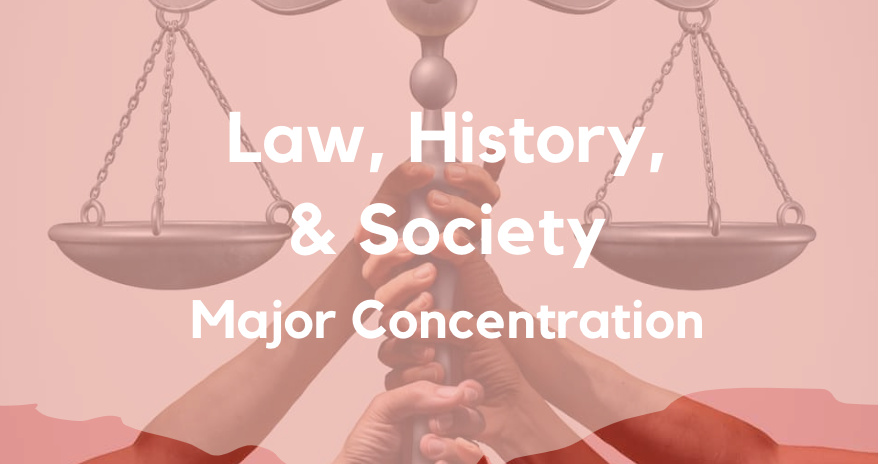The concentration offers students the opportunity to develop an understanding of law as both a product of and contributor to local, regional, national, and global history. Examining law and its impact on communities in multiple contexts and through various lenses will enable students to acquire a critical perspective on how law and its corresponding institutions and traditions have not only shaped cultures, structures of power, and society to establish continuity and stability, but also how individuals, groups, and societies have used law and legal institutions to affect fundamental, and even radical, change in specific societies over time. To earn this concentration, students will complete a variety of history courses that stretch across national and chronological boundaries, enabling them to explore the impact of laws on society through political, economic, and religious institutions as much as through social and cultural practices.
Student Learning Outcomes:
- Demonstrate a critical understanding of the evolution of legal thought, structures, and institutions, including both the effects of these legal phenomena on societies and how societies have used law to promote or resist change.
- Assess the domestic political, economic, social, and cultural ramifications of legal and constitutional practice and institutions in secular and religious contexts within and between discreet societies that span the globe.
- Develop skills of historical thinking, in particular comparing and analyzing discrete historical contexts through the lens of normative (i.e., legal, moral, and political) structures that underpin a variety of traditions, assumptions, and customs, and that continue to shape contemporary political and social contests and conflicts.
- Contextualize and analyze the varieties and complexities of legal structures and demonstrate the ability to craft well-supported historical narratives, arguments, and reports of research findings about how they were used throughout history as a means to challenge and legitimate political authority.
